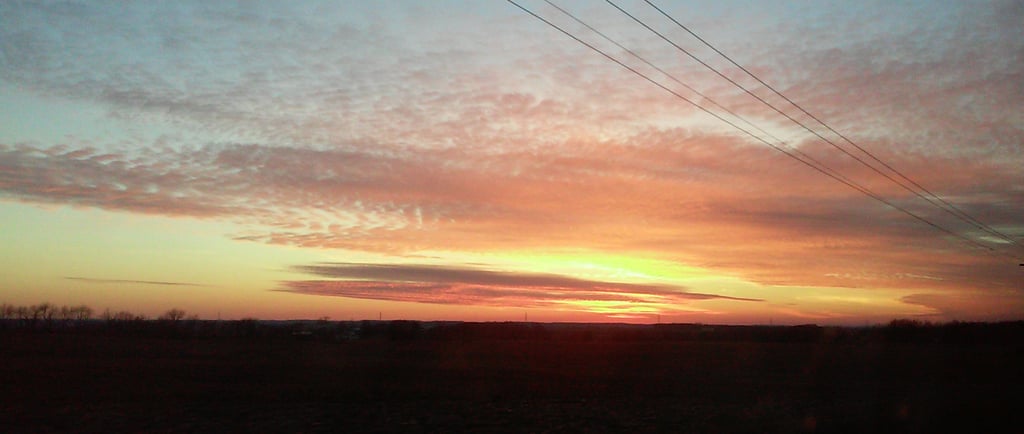Are You Stealing Your Tomorrows?
More importantly: how do you stop?
PHILOSOPHYOBSERVATIONWELL-BEINGSIMPLIFIED LIVINGSOCIETY
Heidi Hahe
4/18/20256 min read


How often in life do we feel like we are embodying the idea of burning the candle at both ends? With the fast paced, busy lives that so many of us lead today, it’s commonplace for this adage to not just describe a season, but someone’s entire life. There can even be an idea that dedicating our lives to working or being ridiculously busy is somehow correct or just what life is, but what is the consequence of constantly living at this level?
Considering one of my hobbies is observing and thinking about how we conduct life in general, I’ve spent a great deal of time thinking about the insurance industry. That might have seemed like an odd topic of focus at one point in time, but with the advent of everyone’s favorite (alleged) assassin, the immense issues that revolve around the insurance industry are becoming more clear. But for me, I learned from my “psychology of personal security” professor in college that insurance was a fear-based racket and it’s hard for me to find evidence to contradict that perspective.
But why am I discussing insurance with regard to being too busy? Well, during my quiet contemplation I asked a question that felt rhetorical at first: why is our health insurance tied to our employment? Auto insurance isn’t and, arguably, most Americans use their car primarily to drive to work. So why isn’t health insurance more like auto insurance? Then a thought entered my mind that I haven’t been able to shake in the years since I thought it: health insurance is connected to our employment because our jobs are the root cause of most of our health problems.
Before my thoughts can be twisted, I’m not saying that hard work is harmful, I’m saying that stress is harmful. Far too many occupations in today’s world do not actually involve true, physical, mathematical work. In fact, I am more of the mindset that this lack of labor is one of the problems. Environments with high emotional stress combined with very little physical activity for long stretches of time are practically a recipe for disease.
As this idea was coalescing in my mind, I happened to listen to an audiobook of the John F. Kennedy biography, where the biographer began the story, not with the birth of the 35th President, but three generations back from Jack. The holistic biographer described the intensely difficult life of Irish (and other) immigrants during the genesis of the industrial revolution and how this brutal life led to their early deaths, generation after generation.
Of course, the story drastically improved for the Kennedy family–let’s not get into how–but it didn’t for the vast majority of their fellow, hardworking immigrants. The history of my Irish ancestors, for example, was punctuated by hard, physical labor, up until my dad went to college in his late 30’s. But my dad’s father was a carpenter who consistently worked long hours building houses and he died in his mid fifties.
Burning the candle at both ends…makes the candle burn out faster. Lighting the candle at the beginning and the end, using more of the finite energy of the wick at one time, shortens the lifespan of the candle, of its potential light-span. What if this is more than just a metaphor, what if that’s exactly what’s happening to humanity?
What if each human has a finite wick of energy in life, like the string of life that the fates weave in Greek mythology, and, by “working so hard”, we’re burning through it faster than perhaps we would otherwise have to. When we consider the existence of what are called “Blue Zones”, areas of the world where the inhabitants consistently live to be 100, and the commonalities of these communities, the detriment of the way we live in the west becomes a little more clear.
Despite being geographically spread out, from Asia to the Mediterranean to North America, these communities have a great many lifestyle markers in common. They have mostly plant-based, non-processed foods, strong family and community bonds, a sense of purpose in life, daily physical activity, and a prioritization of rest and low stress. Or, as it seems, the complete opposite lifestyle of modern America.
Just like the candle, stealing from the end of its finite lifespan, we are able to steal from our tomorrows by using more than the amount of energy that any human was meant to expend in one day. When our day to day lives require a day and a quarter’s worth of energy, in four year’s time we’ve stolen an entire year’s worth of tomorrow’s from ourselves.
Our employers provide our medical insurance because they are the cause of the health problems that are plaguing our nation, with regard to both physical health and mental health–although tell me where the dividing line is, because I can’t find it. Physical situations come with an emotional component and emotions are physically felt in the body; they aren’t separate. And, really, the lifestyles of those living in Okinawa, Japan and Sardinia, Italy should prove that bringing these aspects of self into unity and balance are the key to longevity.
Working isn’t the problem, but living in a society that rewards stress and possesses very few spaces that encourage rest and balance, at any age, is a problem. Or, more to the point, living out of alignment with how a human being is meant to live is the problem. Sitting at a desk all day is harmful and that’s not a secret. Stress is at the root of the most common causes of premature death, like cardiovascular disease, and that’s not a secret.
They pay for the healthcare because they’re causing the health problems by asking us to live out of alignment and to consistently take from our tomorrows to provide them with a more profitable present.
I find it somehow validating to read the list of the commonalities of the Blue Zone communities and realize that living in that way has been my personal life goal for close to ten years now. My husband and I, and the little “chosen family” that we’ve collected over the years, are planning to buy land and create a community where we all grow food together to share and we keep our lives simple and our cost of living low so that we can move through our days with little to no stress, untethered from the almighty hour as much as possible.
We’re trying to stop stealing our tomorrows by giving ourselves the space to be fully present and fully conscious of existence today. And to live in such a way where we also don’t allow tomorrow to steal the joys of today. It is a practice to pursue a life where we are able to live in and for today, especially when we’ve grown up in a world that tells us to “get a real job” and “save for retirement”, but we do it. And we’re happier for it.
Because I have this theory–and yes, I’m willing to make my life a grand experiment to see if I’m right–that if we create a life that we love, by pursuing our skills and passions, and we take good care of our bodies so we can keep doing the things that we love, we won’t need to retire. We won’t want to “retire”. I will never stop writing. I will never stop being a philosopher or a baker. My husband will never stop drawing or tattooing or playing music. We’re building a life where we recognize when we require rest and we take it, where human connection is a priority and where our passions and our highest joys are taken seriously and pursued with focus, instead of being relegated to “hobbies”.
If we build a life that we love, we don’t need to retire from it. If we build a life where we are conscious of when we need action and when we need rest, then we’ll stop stealing from our tomorrows and allow ourselves to be fully present in today. To feel the sunshine on our skin, the air entering and leaving our lungs, the tingling of electricity that skitters over our entire bodies–to feel alive.
Hard work and rest are not opposites, they are complements. Boundaries aren’t luxuries, they are necessities. Self-care is not selfishness, it’s crucial; a cup will never pour until it’s filled up. Work hard, but work hard for your family, work hard for your goals and your dreams, and rest just as hard as you work. That’s how you stop stealing from tomorrow.
Photo: Sunset in Ohio, 2015
